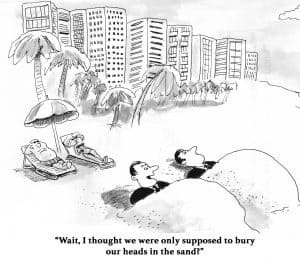
Recently the Medical Journal of Australia published new guidelines for general practitioners (GPs) on how to identify work-related mental health conditions (MHC). This is vital information as GPs are often the first opportunity where mental health conditions can be identified or confirmed. It also assists occupational health and safety (OHS) professionals by acknowledging the role of work in the positive and negative mental health of workers.


 It is always good to see researchers assessing issues related to workplace health and safety rather than relying on overseas data. Recently researchers from the Australian Catholic University and St Vincent’s Hospital in Melbourne looked into “measuring the effectiveness of workplace health management programs” . The research adds to our understanding of these programs but the relevance to occupational health and safety (OHS) is limited.
It is always good to see researchers assessing issues related to workplace health and safety rather than relying on overseas data. Recently researchers from the Australian Catholic University and St Vincent’s Hospital in Melbourne looked into “measuring the effectiveness of workplace health management programs” . The research adds to our understanding of these programs but the relevance to occupational health and safety (OHS) is limited.
 If occupational health and safety (OHS) is to include the “whole-of-life” for workers, companies, products and projects, OHS professionals need to expand their pool of knowledge to meet the demands for an inclusive organisational culture. One recent research paper supports this approach by looking at the return to work of cancer survivors.
If occupational health and safety (OHS) is to include the “whole-of-life” for workers, companies, products and projects, OHS professionals need to expand their pool of knowledge to meet the demands for an inclusive organisational culture. One recent research paper supports this approach by looking at the return to work of cancer survivors. 